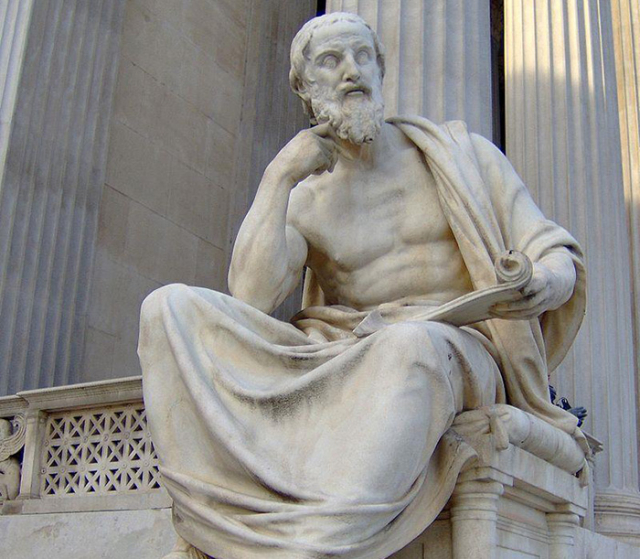Teaching primary history through concepts

Teaching primary history through concepts
Teaching history in schools is quite new (it’s only been in the National Curriculum for English state schools since 1991), but the discipline of history as a subject is very ancient.
Thinking and writing in a recognisably historical way can be traced back to the ancient Greeks. Herodotus, an ancient Greek writer, collected stories of the past that were available at the time at which he lived. But what sets his writing apart was the way in which he treated his sources of information. He actively researched, seeking out new material, but said, ‘I am bound to report what I have heard but not in every case to believe it.’ In other words, he claimed to sift the available evidence critically, checking his sources thoroughly as a good modern journalist should (in fact, his writing includes some pretty obviously tall stories, but his attitude towards the available evidence was marked by healthy scepticism).
So if primary teachers (and their pupils) form part of that ancient community of enquiry, which embraces everyone who studies history in the present (and stretches back to Herodotus himself), then they need to be aware of the tension at the heart of the discipline between telling the story (and stories) of the past and doing so in a critical way, striving for objectivity. This ancient tension is reflected in the current debate around the role of knowledge in schools, partly prompted by the 2019 Ofsted framework...
This resource is FREE for Primary HA Members.
HA Members can sign in to access this content or you can Join the HA if you are not already a member.

